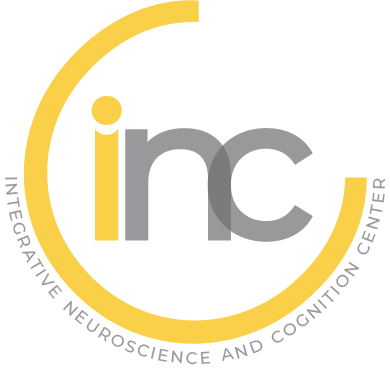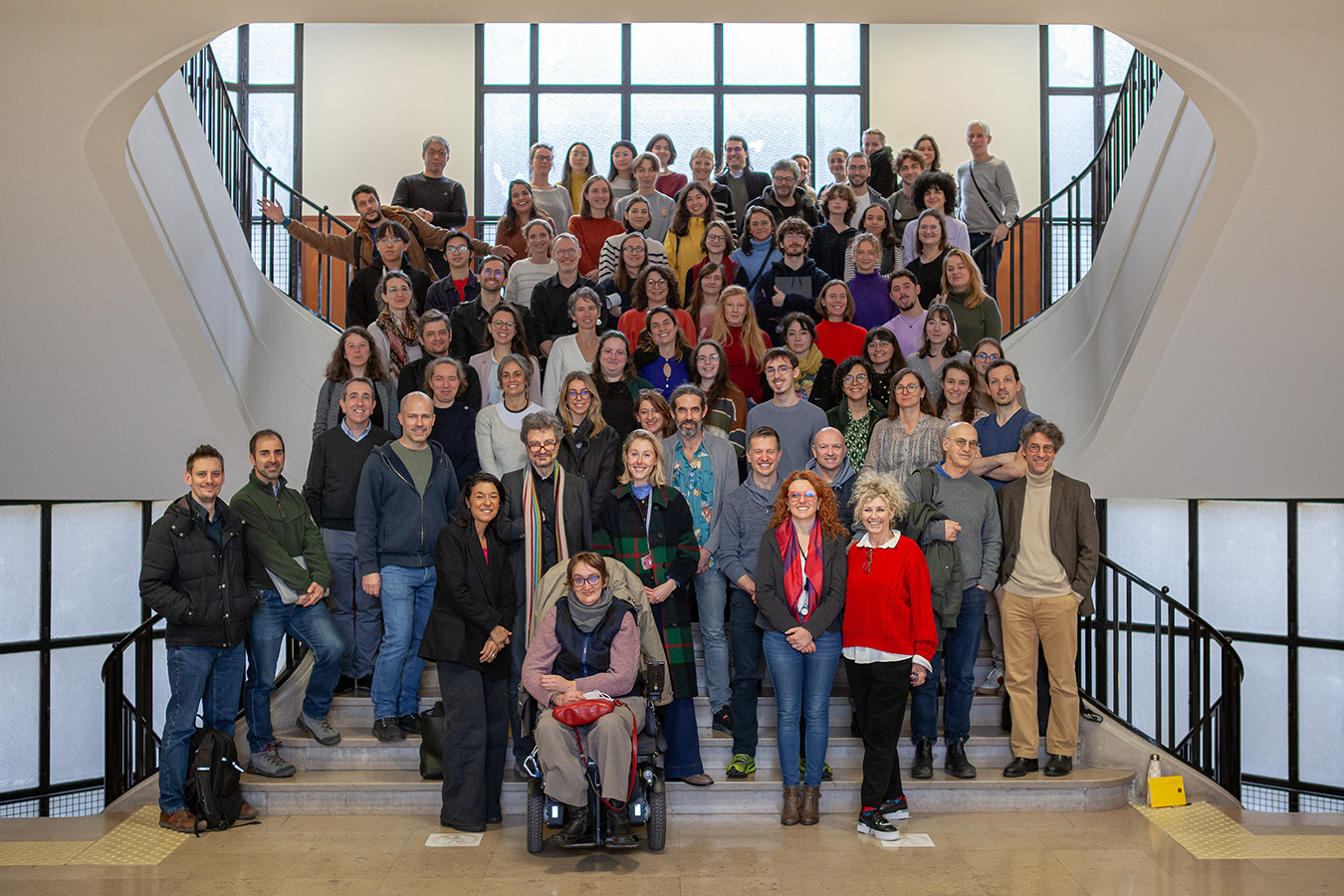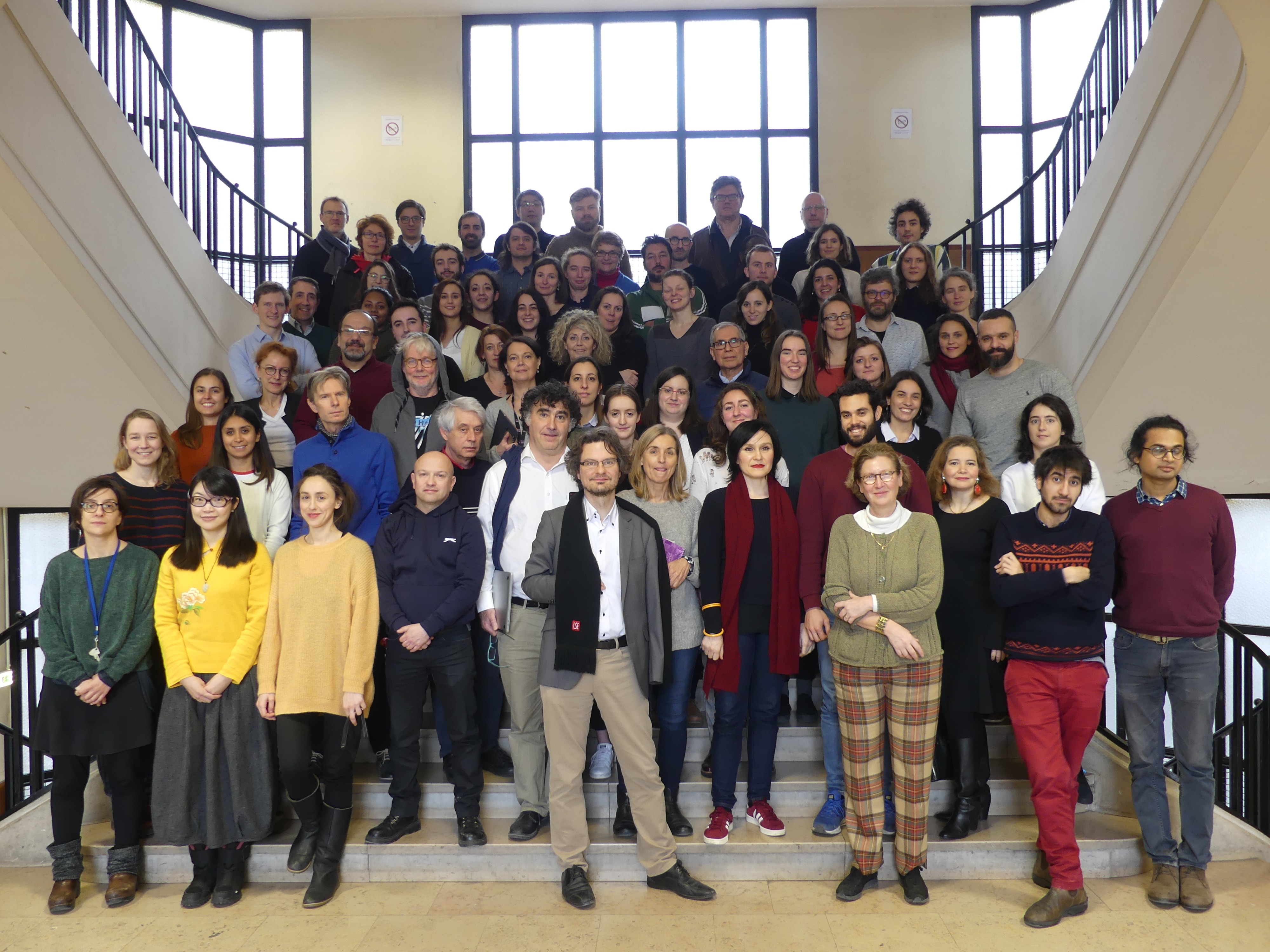MESSAGE From THE DIRECTOR
Located in the heart of Paris at the Centre Universitaire des Sts. Pères of the University Paris Descartes, the INCC breaks barriers between disciplines and thus creates new research topics and new approaches to address the complex functional and neurophysiological aspects of behavior and brain functions.
“The neurosciences” developed along two different traditions, each with its own origin in the scientific endeavors of the 19th century and earlier. The “brain tradition” was interested in the morphology and physiology of the central nervous system. Golgi method, single and multiple cell recordings, electron microscopy, calcium imaging, 2-photon microscopy and other imaging methods progressively allowed these researchers to understand the macro- and micro-structure of the brain, as well as how the elements of the brain communicate. On the other hand, the “mind tradition” sought to understand the functions that the brain generates. Psychophysical testing, cognitive assessments, and reaction time methods allowed these researchers to understand the functional principles of human perception, cognition, and behavior.
However, fueled by the emergence of new methods like optogenetics or DREADD technology (Designer Receptors Exclusively Activated by Designer Drugs (DREADD)), the “brain tradition” is currently undergoing a surge of interest in the perceptual, cognitive, and behavioral functions that brain activity generates. Likewise, driven by new methods like fMRI (functional magnetic resonance imaging), TMS (transcranial magnetic stimulation), MEG (Magnetoencephalography), and others, the “mind tradition” is increasingly studying the brain activity that perceptual, cognitive, and behavioral functions are based on.
The neurosciences are thus in the middle of a convergence of interests between the two traditions. We are today at a point where a greater understanding of the nervous system and complex human behavior and cognition can be acquired only by an integrated approach to neuroscience that abandons the separation between the mind and brain traditions. This approach is implemented by the Integrative Neuroscience and Cognition Center (INCC – UMR 8002, CNRS and Université Paris Cité).
INCC researchers come from disciplines as diverse as psychology, movement science, medical science, engineering, physics, neurophysiology and biology. INCC psychologists and movement scientists excel in the assessment and analysis of human perception, cognition, decision-making, attention, memory functions, learning, language production and comprehension, action control and more. INCC biologists do outstanding research in network, cellular, and molecular neuroscience that helps us to understand the neuronal and glial basis of integrative brain function as well as their molecular underpinnings. INCC physicists investigate the operating principles of brain and build state-of-the-art models of both behavioral and neurophysiological findings.
Florian Waszak
INCC MEMBERS
MESSAGE OF THE DIRECTOR
Located in the heart of Paris at the Centre Universitaire des Sts. Pères of the University Paris Descartes, the INCC breaks barriers between disciplines and thus creates new research topics and new approaches to address the complex functional and neurophysiological aspects of behavior and brain functions.
“The neurosciences” developed along two different traditions, each with its own origin in the scientific endeavors of the 19th century and earlier. The “brain tradition” was interested in the morphology and physiology of the central nervous system. Golgi method, single and multiple cell recordings, electron microscopy, calcium imaging, 2-photon microscopy and other imaging methods progressively allowed these researchers to understand the macro- and micro-structure of the brain, as well as how the elements of the brain communicate. On the other hand, the “mind tradition” sought to understand the functions that the brain generates. Psychophysical testing, cognitive assessments, and reaction time methods allowed these researchers to understand the functional principles of human perception, cognition, and behavior.
However, fueled by the emergence of new methods like optogenetics or DREADD technology (Designer Receptors Exclusively Activated by Designer Drugs (DREADD)), the “brain tradition” is currently undergoing a surge of interest in the perceptual, cognitive, and behavioral functions that brain activity generates. Likewise, driven by new methods like fMRI (functional magnetic resonance imaging), TMS (transcranial magnetic stimulation), MEG (Magnetoencephalography), and others, the “mind tradition” is increasingly studying the brain activity that perceptual, cognitive, and behavioral functions are based on.
The neurosciences are thus in the middle of a convergence of interests between the two traditions. We are today at a point where a greater understanding of the nervous system and complex human behavior and cognition can be acquired only by an integrated approach to neuroscience that abandons the separation between the mind and brain traditions. This approach is implemented by the Integrative Neuroscience and Cognition Center (INCC – UMR 8002, CNRS and University Paris Descartes).
INCC researchers come from disciplines as diverse as psychology, movement science, medical science, engineering, physics, neurophysiology and biology. INCC psychologists and movement scientists excel in the assessment and analysis of human perception, cognition, decision-making, attention, memory functions, learning, language production and comprehension, action control and more. INCC biologists do outstanding research in network, cellular, and molecular neuroscience that helps us to understand the neuronal and glial basis of integrative brain function as well as their molecular underpinnings. INCC physicists investigate the operating principles of brain and build state-of-the-art models of both behavioral and neurophysiological findings.


